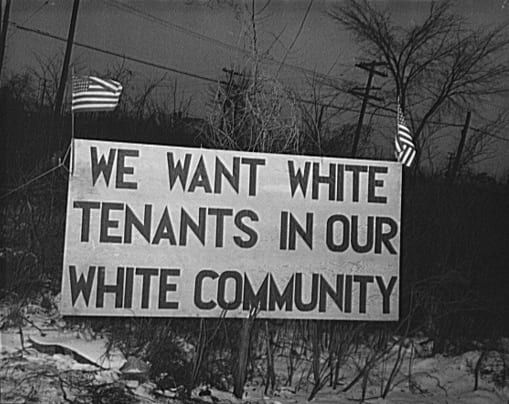Protests against systemic racism and police violence have been going on for days now, following the murder of George Floyd by a Minneapolis police officer. This is just one of countless instances of state-sponsored violence against Black men and women in our communities. The murder of Floyd, combined with the stresses and uncertainties of pandemic, and the further enabling of racism and prejudice by a racist president, seems to have created a perfect storm of civil unrest.
This is not something we as Christians and citizens can afford to ignore. We have a moral obligation to take cognizance of what is happening, to evaluate the extent to which we may be complicit in it, and ask what we can do to help.
Many people may feel uncomfortable speaking out because they fear they will say the wrong thing, or because they are worried about centering themselves as white people in a conversation that needs to be led by Black people and POC. Or perhaps others may worry that speaking out will look performative – as though posting the right meme, then going back to one’s backyard barbecue, will somehow suffice (it won’t).
Nevertheless I believe that anyone who has a platform in Christian or exclusively white circles does need to speak out about this. Our Black brothers and sisters are not looking to us to craft a design for reform – Black community leaders are doing that already, and our white-savior-hood is not needed. Nor is it our duty to elucidate a nuanced “take” on the matter, especially if our elucidation happens in a chorus of whiteness. There may be nuance when it comes to understanding the intersecting powers and privileges in a particular event, but there is no no room for nuance, when it comes to racism per se. Understanding racism requires work and education, yes, so it is not “simple” in the sense of being easy or one-dimensional.
But there are a few simple and obvious things we can do in the face of racism, including our own racism and racism in our communities: we can start simply by saying, it is wrong. It is a sin. And like any other sin it calls for personal repentance and active penance.
As Christians we participate in the rituals and assert the creeds of a religion which has an unfortunate history with regards to race relations in our nation. The church failed to condemn slavery, failed to excommunicate slave-owners, failed to condemn genocide against indigenous peoples. Clergy and religious kept slaves themselves. Black and Native religious were persecuted by their own white brothers and sisters. Therefore as Christians it is our obligation to reject racism, and to stand with our Black brothers and sisters, to listen to them, to lend them our platforms and our voices.
If you are struggling to articulate what you as a white person have to say on the subject of racial justice you are not alone. Many of us are trying to figure out what to say without coming off as white-savior-y, or performative, or self-centering.
We Are Not the Leaders Here
Here’s a way to think about it: we as white people do not have to craft extended takes on racial issues. We are not the ones who should be leading this conversation because we do not have first-person experience of racial injustice and may inadvertently be harboring many racist ideas ourselves. We will probably be clumsy, and wrong.
So maybe there’s not a lot we need to say, and there’s even a respect in which our silence can be positive – if it’s the silence we place upon ourselves as we step back and listen to Black and Indigenous persons, and people of color. But if we are silent due to indifference, or because we don’t want to rock the boat, this is a negative silence, a toxic silence. It is a silence that cries out to our non-white fellow citizens that we do not care about the injustices they have suffered.
We do need to act, however. We need to research our candidates for political office, locally and nationally, and support those who promote racial reform, vote out those who have been personally racist or who advance systemic racism. We need to donate money, labor, and talents to organizations that promote racial justice. We should be hiring Black speakers to teach us – not expecting them to labor for free. When in white circles we need to use our influence to oppose the kind of racist and derogatory speech that happens because there’s no one else around.
On a personal level we need to work on our own inclinations towards racism. Do we automatically judge people who have Black sounding names? Do we flagrantly appropriate the art and cuisine of non-white cultures, for our own amusement or advancement, without in turn supporting the rights of people in those cultures, or compensating them for our gain? Do we support, financially, individuals and institutions that have been responsible for advancing racial injustice? Have we voted for openly racist candidates because “the economy” or “but abortion”?
Who are we following, on social media, as religious and intellectual leaders? How many of them are non-white?
Maybe think about seeking out some Black, Native, and POC leaders in religion, politics, culture, and the arts. Follow them, buy their books, listen to their podcasts. Retweet them. Amplify their voices. Learn about non-white cultures and what they have to teach us.
And finally, here’s a simple question. Can you say “Black Lives Matter”?
Can you say it simply without embroidery or nuance?
Can you say it without adding “All Lives Matter”?
If you feel the need to say something – but can not bring yourself to say this, just this one simple truth – ask yourself, why?
Black Lives Matter. Period.
image credit:












